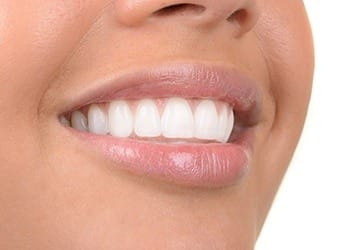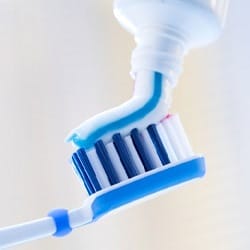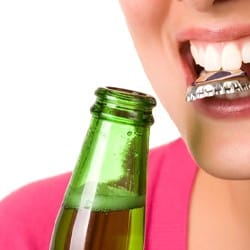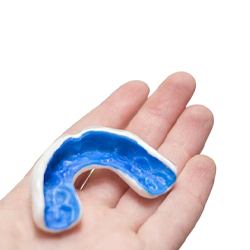Dental Implants – Falls Church, VA
Experience a Lifelong Solution to Tooth Loss

In today’s world, there is no better solution for rebuilding strong, lifelike teeth than dental implants. Without a tooth root in place, patients can experience jawbone deterioration and reduced oral health over time. Dental implants prevent this unwanted effect, recreating a new “tooth” that is virtually indistinguishable in look, feel, and aesthetics from the one that came before.
At Purple Plum Dentistry, Dr. Kiani is proud to partner with her in-house periodontist for comprehensive dental implant treatment plans! If you’re in the greater Washington, D.C. area and would like to visit us for an implant consultation, please call today.
The 4-Step Dental Implant Process

With the help of our experienced in-house periodontist, Dr. Kiani can perform every stage of dental implant treatment – from initial consultation to surgical placement to the addition of a final, beautifully customized restoration – right here in the office. This means that patients save valuable time that would otherwise be spent traveling to separate practices and can remain with a team they already know and trust throughout the care process.
Benefits of Dental Implants

Over 500,000 people choose dental implants every year because of their natural look, feel, and function. Thanks to their unique surgical placement in the jawbone, dental implants provide benefits that you simply won’t get with traditional replacements like bridges or dentures. Read on to learn more about the amazing benefits of dental implants in Falls Church.
Who Dental Implants Can Help

Whether you have a single gap in your smile or an entire arch of natural teeth has been lost, dental implants are a versatile and transformative solution that can suit most patients. We will work with you closely to determine the ideal restoration for your unique needs. Keep reading below to learn more about your options:
Understanding the Cost of Dental Implants

No two smiles are alike, and as such, there are several factors that can contribute to the cost of dental implants in Falls Church, like the number of teeth that need to be replaced and whether any preparatory procedures are necessary. During an initial consultation, we will assess your personal circumstances and provide a projected estimate for dental implant treatment. Our goal is to help you feel 100% confident about your decision to replace your lost teeth with dental implants!
Maintaining & Caring for Your Dental Implants

Because they essentially become the roots of your new teeth, dental implants have the potential to last for several decades. Many dental implant patients are even able to keep them for the rest of their lives! However, they’re only able to last that long if you take proper care of them. Fortunately, dental implant care in Falls Church is not that different from maintaining natural teeth. Here are some simple tips for making your dental implants last as long as possible.
Dental Implant FAQs

Some people find dental implants too good to be true at first, but the reality is they are by far the best tooth replacement method out there and are proven to mimic teeth closer than any other treatment! Purple Plum Dentistry is always happy to answer your questions in great detail to ensure you’re feeling comfortable about your future care, so feel free to give them a look below ahead of your visit. If your question is not mentioned, please give us a call and we’ll make sure to keep it in mind when you visit in-person!























